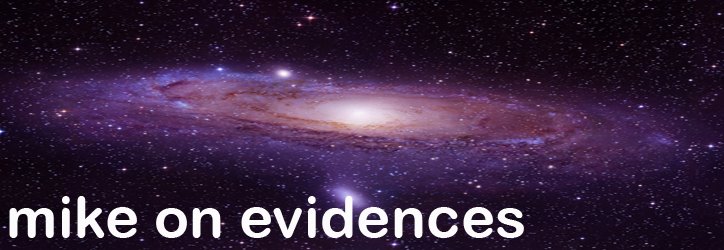The best scientific guesstimates of the age of the earth are in the ballpark of
 4.67 billion years old. That’s a humongous ballpark. It’s a ballpark in which you cannot see the fence. 4.67 billion years is a really big number. It’s a 467 followed by seven zeros. Even 467 years is a long time! If we look back in time 467 years, we would be looking at 1542. What happened in 1542? Henry VIII’s fifth wife Catherine Howard (right) was executed for adultery, which seems to have been missing the point, and Cabrillo landed in what is now San Diego Bay. That’s what we call the “olden days.” Yet 467 years is only one millionth of the commonly accepted age of the earth. A million 467-year periods, a million of them… would take us back to the guesstimated beginning of the earth.
4.67 billion years old. That’s a humongous ballpark. It’s a ballpark in which you cannot see the fence. 4.67 billion years is a really big number. It’s a 467 followed by seven zeros. Even 467 years is a long time! If we look back in time 467 years, we would be looking at 1542. What happened in 1542? Henry VIII’s fifth wife Catherine Howard (right) was executed for adultery, which seems to have been missing the point, and Cabrillo landed in what is now San Diego Bay. That’s what we call the “olden days.” Yet 467 years is only one millionth of the commonly accepted age of the earth. A million 467-year periods, a million of them… would take us back to the guesstimated beginning of the earth.Two Views
I called the figure of 4.67 billion years a “guesstimate.” I used that word, because it’s sort of an educated guess on the part of experts. I mean, the earth might have started 4.7 billion years ago, or maybe it was 4.5 billion years ago. What’s 20 million years when we’re talking about 47 ten million year periods? But 20 million years is itself an unfathomable period of time. Even the experts can’t fine-tune the calculations much more than millions of years! It’s such a long span that 20 million years is considered insignificant. So 4.67 billion is an educated guess.
 people will say there are many other proofs for the old dating of the earth. So it is an educated, guess.
people will say there are many other proofs for the old dating of the earth. So it is an educated, guess.The figure of 4.67 billion years goes hand in glove with the theory of evolution. In fact, a staggering time period is required by evolution. If the earth was much younger, then evolution could not be true, as it is now taught. One website puts it this way, “Mutation, Gene Flow, Genetic Drift, Natural Selection + 3.8 billion years = Macroevolution.” [1] The widespread presupposition now popular is that the earth is very, very old, and it must be old, or the modern scientific perspective based on evolution would crumble. A lot rides on those billions of years.
Is there evidence for an earth that is not billions of years old? Yes. Many claim proof exists in things like the relatively thin layer of silt on the ocean floor. This and many other anomalies, according to “young earthers,” seem to indicate the earth’s age might have a few less zeros. Qualified scientists still contend the evidence shows that the earth is not billions of years old. They are a minority and are pretty much marginalized and discredited by the majority opinion. However, they do exist. There is a counterpoint no matter how it is derided.
Deep Time
When we talk about billions of years we enter into what we call “deep time.” Basically deep time means it’s so long we cannot comprehend it. P.H.D. John Morris says, “One billion years cannot be grasped, neither can 4.67 billion years for the supposed age of the Earth or 14 billion years or so since the Big Bang. These words may be easy to say, and within our mathematical calculations, but I suggest they carry no meaning. The invariable accompaniment of the outward rolling of the hands, suggest that tales of "billions and billions" of years are nothing more than arm-waving, perhaps capable of impressing or intimidating, but not of communicating understandable information.”[2] The only way we can think about one billion years, let alone a 467 followed by seven zeroes… is by making a metaphor. Many geology students are given an assignment of creating a metaphor to give some kind of a concept of this time length that we can grasp. So how long is a billion years? One metaphor I liked says that if we compressed the 4.67 billion years into a 24-hour period, man only showed up in the last two seconds. For 23 hours, 59 minutes and 58 seconds came all the formation, cataclysms, evolution, extinctions, mutations, and natural selection prior to man.
To count from one to a billion would take 95 years. A fish tank that w
 ould hold 1 billion goldfish would be the size of a stadium. These word pictures describe the immensity of this number. But the common opinion across the board is that we can’t grasp it. It’s just too much for our puny brains to digest. The GSA website states, “For many people, however, deep time is a critical barrier to learning science; the meaning of immense spans of time is elusive and unfamiliar…”[3]
ould hold 1 billion goldfish would be the size of a stadium. These word pictures describe the immensity of this number. But the common opinion across the board is that we can’t grasp it. It’s just too much for our puny brains to digest. The GSA website states, “For many people, however, deep time is a critical barrier to learning science; the meaning of immense spans of time is elusive and unfamiliar…”[3]





No comments:
Post a Comment